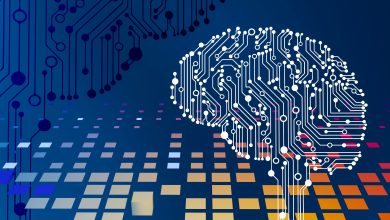
AI isn’t just changing how we work, but changing what work looks like altogether. For people already in the field, it’s clear this isn’t just about automating tasks, but creating space for entirely new roles and skillsets.
According to PwC’s Global AI Jobs Barometer, job postings requiring AI skills in the UK have grown 3.6x faster than all other roles since 2012, and employers are paying an average 14% wage premium for employees with those skills. So rather than fearing job losses, the real challenge lies in how we upskill and adapt to stay ahead of the curve as technology evolves.
For businesses, there are several ways to build AI capability across their workforce, ranging from short-term training courses and certifications to internal knowledge-sharing initiatives and strategic hiring. However, one of the most impactful and sustainable approaches is through apprenticeship programmes. These not only provide structured, hands-on learning tailored to real-world business needs, but also offer long-term benefits for both employers and employees.
Apprenticeships play a vital role in enabling both organisations and individuals to navigate the changes being created by AI use, ensuring that the entire workforce feels comfortable to thrive amidst this technological transformation.
They also offer a powerful route to open up opportunities for underrepresented groups, particularly in tech and digital roles. For employers, this is a chance to address widening skills gaps while building more diverse, inclusive and future-ready teams.
The age of AI is here
From healthcare and logistics to finance and customer service, AI is being embedded in core business functions. The UK is home to more than 3,700 AI companies, employing over 60,000 people and contributing £3.7 billion to our economy. This reflects the UK’s growing role in the global AI landscape, especially in terms of talent demand and investment.
Jobs are evolving as AI becomes more integrated into the workplace, relieving employees from repetitive tasks and enabling workers to expand their skillsets, take on more strategic responsibilities and add greater value. New roles are emerging as a result and existing ones are being redefined.
But while AI can enhance productivity and innovation, it’s only as effective as the people who use it. Human judgement, creativity and ethical decision-making remain essential. AI may be powerful, but it still relies on people to guide, interpret and apply it in meaningful ways.
That’s why, in the age of AI, people are more important than ever.
Skills are the new currency
The pace of AI development demands continuous learning, adaptability and digital literacy. But traditional academic pathways often struggle to modernise curriculums fast enough to keep pace with this speed of change. Apprenticeships, however, offer a dynamic alternative – providing real-world, hands-on experience that evolves with industry needs.
And it’s not just school leavers who beneifts. Apprenticeships are increasingly valuable for mid-career professionals looking to pivot, reskill or deepen their expertise. They offer a scalable, responsive way to build and sustain a future-ready workforce. And crucially, they are increasingly being used to upskill workers in AI, teaching employees how to not only use the technology on a practical level but how to identify areas where it can drive value creation.
Preparing for a future-ready, “hybrid” workforce
The term ‘hybrid’ no longer solely refers to remote vs. in-office work. Today, it means humans working alongside intelligent systems, collaborating with machines, data systems and automation tools, which is where targeted, practical retraining strategies become essential.
One of the most effective approaches to upskilling is implementing modular apprenticeship programmes, which allow employees to gain relevant, hands-on skills without pausing their careers. These programmes can be tailored to the specific needs of an organisation, making them ideal for equipping internal teams with the digital fluency and problem-solving capabilities needed in an AI-enabled workplace.
It is vital, however, that this kind of training reaches beyond just tech teams, embedding digital literacy across all departments to ensure that every employee can contribute to innovation and adapt to evolving tools. And as the pace of change accelerates, organisations should strive to foster a culture of lifelong learning, where ongoing development is the norm.
Where do employers go from here?
The first step for any employer preparing for an AI-enabled, hybrid workforce is to conduct a thorough skills audit. This means identifying current capabilities within their organisation, where the gaps are, and mapping which skills will be most critical as technology continues to reshape roles.
From there, partnering with an apprenticeship provider that offers tailored programmes will ensure specific skills needs are catered for through customised apprenticeship training solutions that align with business objectives.
While these are both vital points, employers should keep in mind that it is essential to continue to invest in both technical and human skills. While software skills, data literacy and AI fluency are key, they must be complemented by capabilities like communication, critical thinking, and adaptability. In the age of AI, it is the blend of human and technical strengths that will define the most resilient and innovative teams.
Final words
AI doesn’t eliminate the need for people, it redefines the value of human contribution. Skills like critical thinking, emotional intelligence and adaptability are becoming even more essential as we learn to work alongside intelligent systems.
The role of apprenticeships are becoming more important than ever in the technology’s adoption. They help people gain the skills they need now to be ready for the jobs of the future. Offering a hands-on, inclusive and practical way to learn, apprenticeships help individuals build real experience while picking up the skills that are becoming essential in an AI-powered economy.
Investing in apprenticeship programmes is a long-term strategy to future-proof your workforce. By embracing accessible, hands-on learning, organisations can equip their teams to thrive in an environment defined by confidence in their ability to adapt and lead through change.




